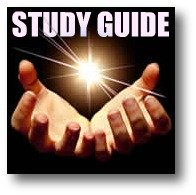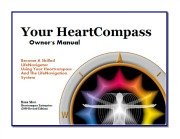Epistemology (Philosophy of Knowledge) may be second only to Metaphysics in its relevance and application to everyday Life.

Epistemology translates literally from the Greek "episteme" (knowledge) and "ology" (philosophy) to mean "the philosophy of knowledge".
The philosophy of knowledge seeks to answer the question, "how do I know what I know?"
It also looks at the true nature of belief, how belief is justified in the mind, and how truth, knowledge, and belief differ.
In Sanskrit, an ancient Vedic language, the word "to know" literally means "to go through" or experience. In it's most basic sense, knowledge can be understood as that which is directly experienced and can be verified through repeat experience, and/or the confirmation of shared experience.
In the Socratic Method, a method of teaching that has led to the development of the scientific method, learning comes about through inquiry and personal experience, rather than lecture and what one might call resulting "belief". Belief is therefore a system of thought that comes about as a result of hearing or reading words from a source that claims to have had the desired experience. However, unless and until the receiver of this information can verify it through personal experience, they cannot really say "I know".
In everyday life, becoming aware of the true nature of knowledge and belief, and how these thought systems affect us emotionally and behaviorally, is critical to achieving personal empowerment and even basic needs such as physical and emotional health and well being.
The understanding of the source and nature of thoughts and beliefs can be applied in a number of practical areas. These include the true nature of the mind, how to enhance cognitive function and performance (NLP or Neuro Linguistic Programming is one example of this), and how to develop thinking skills in children and students.
It is also critical to understanding how influences in our lives, such as authority figures, religious leaders, mass media, and even peer pressures, can shape our belief systems and what we "think we know". Knowing the difference between what we really know, and what we think we know, is perhaps one of the most valuable lessons and life skills to possess.
Below are just a handful of links to get you started in your exploration of epistemology, and the true nature of knowledge.
OR: Go Back To: THE PHILOSOPHY OF METAPHYSICS to learn more about the different branches of philosophy.
Links to articles and resources about Epistemology on other sites:

The Importance of Philosophy: EPISTEMOLOGY
Introduction To The Five Branches of Philosophy: There is a hierarchical relationship between these branches as can be seen in the Concept Chart. At the root is Metaphysics, the study of existence and the nature of existence. Closely related is Epistemology, the study of knowledge and how we know about reality and existence. Dependent upon Epistemology is Ethics, the study of how man should act. A subset of Ethics is Politics: the study of how men should interact in a proper society and what constitutes proper. Esthetics, the study of art and sense of life is slightly separate, but depends on Metaphysics, Epistemology, and Ethics.

NLPInfo.com: Your NLP Information Center
NLP Books, Events, Practitioners, Resources, Intro to NLP, Exercises, Humor...Hey, web people!!!! We admit it, we know -- this is a "low-tech" website, but it is really very warm and fuzzy. Neuro-Linguistic Programming (NLP) is an exciting, and totally new technology. Our intention is to introduce NLP to those new to it and to provide a place for the community of interested individuals where the NLP resources on the web and in the world can be accessed.

The Socratic Method on Answers.com
The method of teaching in which the master imparts no information, but asks a sequence of questions, through answering which the pupil eventually comes to the desired knowledge.
Go Back To: THE PHILOSOPHY OF METAPHYSICS
Recent Articles
-
Living In The Chrysalis - 14 "Days" of Total Transformation
Aug 25, 20 10:26 PM
Living In The Chrysalis is about the 14 "Days" of Total Transformation that collective Human Consciousness is experiencing in 2020 and beyond. -
The Zero Point Perspective
Jul 20, 20 01:04 PM
Reality is made up of infinite zero points radiating energy and information into the space-time of the mind. -
Metaphysics For Life - Take the Off-Ramp, Remember Who You Really Are
Jan 03, 20 01:15 PM
Metaphysics for Life is for practical people looking for a way to apply the science, philosophy, and spiritual aspects of metaphysics to their real, everyday lives.








Comments
Have something to say about what you just read? Leave me a comment in the box below.